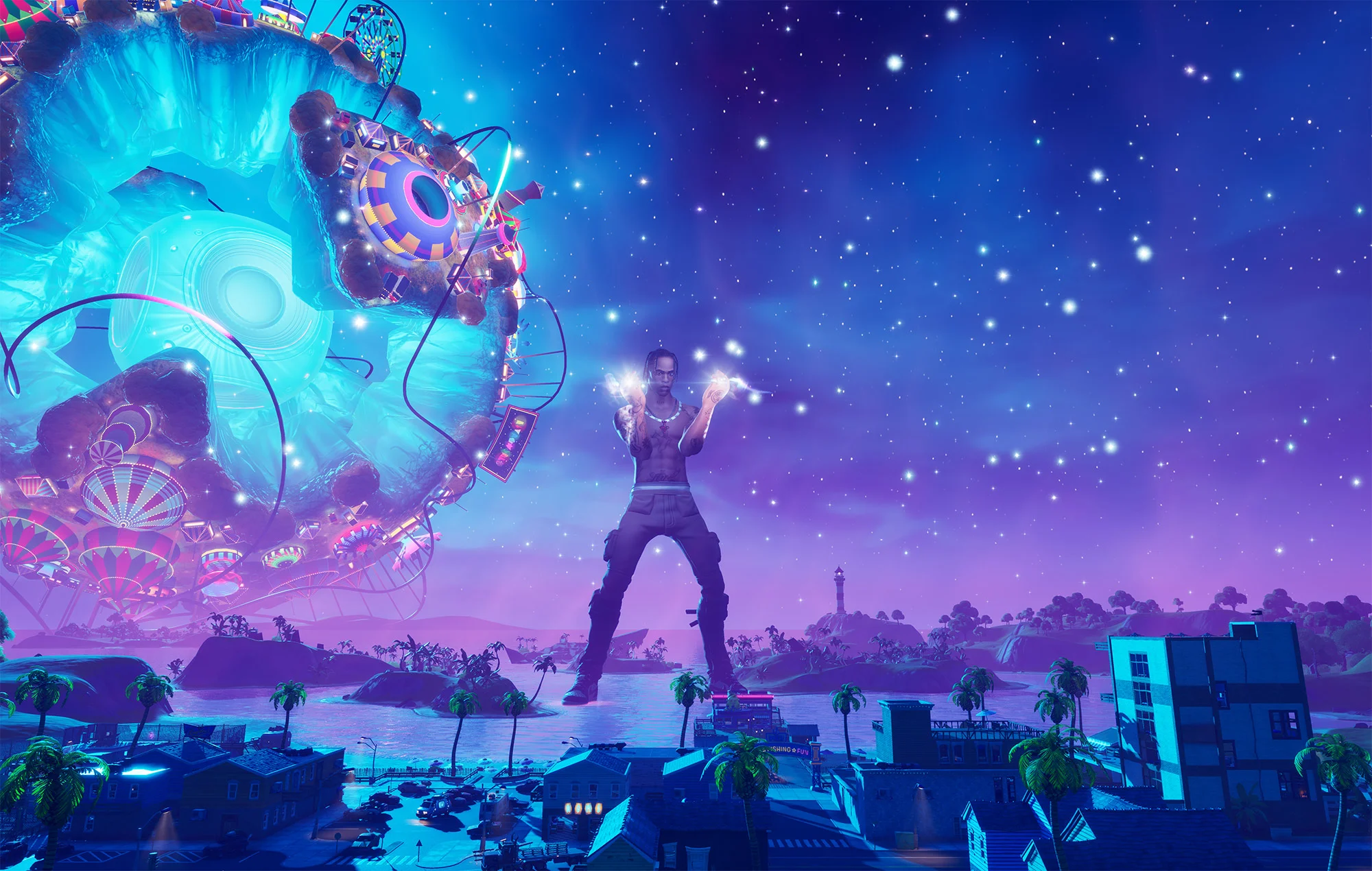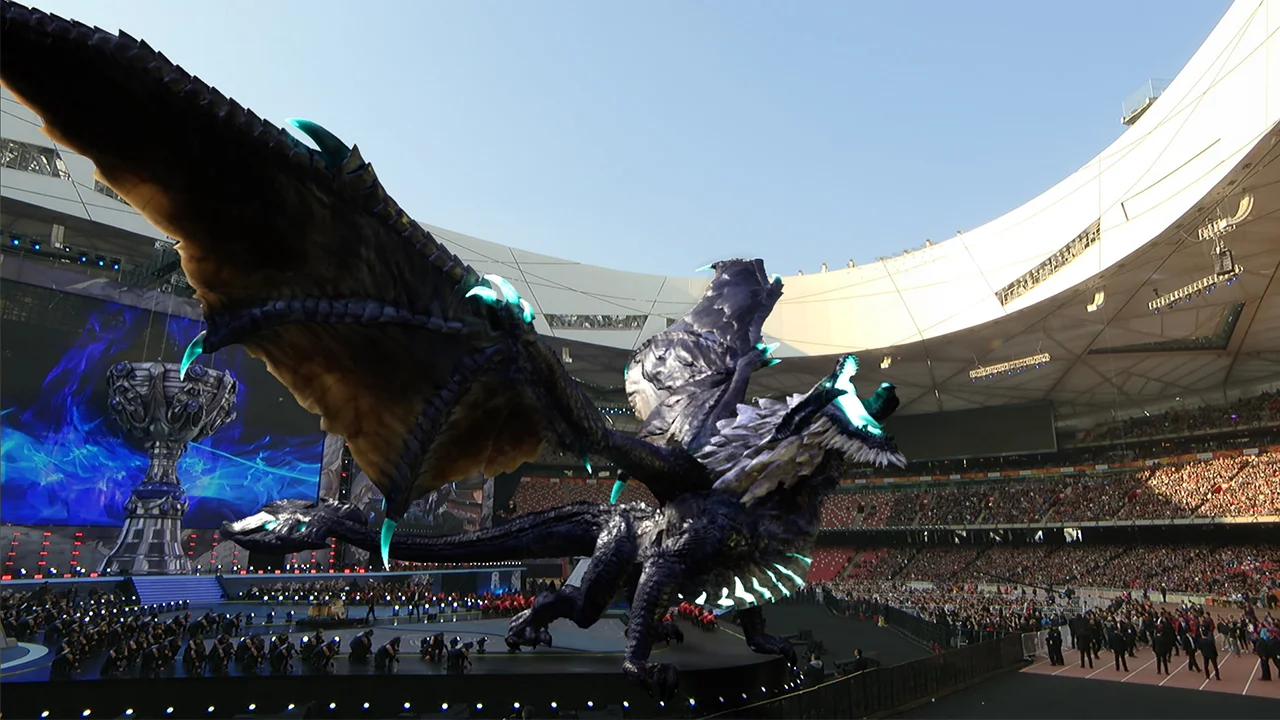In the ever-evolving gaming industry, video game marketing has emerged as a critical aspect of a game’s success. Beyond creating an exceptional game, developers and publishers must effectively promote their creations to reach their target audience and stand out in a crowded market. This article delves into the profound importance of game marketing and explores the key elements that drive successful campaigns. We will delve into the process of developing an effective marketing strategy, examine some triumphant marketing campaigns, discuss the challenges faced by marketers, and glimpse into the promising future of game marketing. Whether you’re a gaming enthusiast or a game developer looking to amplify your game’s reach, understanding the nuances of video game marketing is a must.
The Importance of Video Game Marketing


In today’s competitive gaming industry, video game marketing plays a pivotal role in determining the success of a game. Beyond creating an exceptional product, developers and publishers must effectively promote their creations to reach their target audience and stand out in a crowded market. Effective marketing drives game sales, builds brand recognition, fosters player engagement, and cultivates a loyal fan base. From AAA Games to indie games, understanding and harnessing the power of game marketing is essential for any game’s triumph in an ever-expanding digital landscape.
Key Elements of Video Game Marketing


Effective video game marketing involves several key elements contributing to a game’s overall success and visibility in the market. First and foremost, understanding the target audience and market segmentation is crucial. Knowing who the game is intended for helps tailor marketing efforts to reach the right players and create relevant messaging that resonates with them.
Another essential element is creating compelling and eye-catching visuals, including trailers, screenshots, and promotional art. Engaging visuals draw players in, sparking their curiosity and interest in the game. Additionally, crafting a strong and consistent brand identity is essential, as it helps establish a recognizable image for the game and builds trust among players.
Moreover, leveraging social media and influencer marketing can significantly boost a game’s exposure. Social media platforms offer direct access to the gaming community, allowing developers and publishers to engage with players, share updates, and create a community around the game.
Furthermore, choosing the right timing for game launches and marketing Game Development Companies can greatly impact a game’s success. Avoiding crowded release periods and coordinating marketing efforts with significant gaming events can maximize visibility and generate buzz.
Finally, fostering transparency and open communication with the gaming community builds trust and loyalty. Responding to player feedback, addressing concerns, and involving players in the development process positively impact a game’s reputation.
By effectively integrating these key elements into their marketing strategy, game developers and publishers can elevate their games to new heights, ensuring they reach their intended audience and achieve their desired success.
Developing a Video Game Marketing Strategy


Developing a successful video game marketing strategy requires careful planning, research, and execution. The first step is to define clear marketing goals and objectives, outlining what the team aims to achieve with the campaign. Whether increasing game sales, building brand awareness, or expanding the player base, having well-defined goals provides direction and focus.
Next, understanding the target audience is critical. Conducting market research, analyzing player demographics, and identifying the preferences and interests of potential players helps tailor the marketing approach to better resonate with the intended audience.
Crafting a compelling and unique selling proposition (USP) is essential to differentiate the game from competitors. Highlighting the game’s unique features and benefits in marketing materials helps capture the attention of potential players and convinces them why the game is worth their time and investment.
Selecting the most suitable marketing channels is also crucial. This may include a mix of online and offline platforms, such as social media, gaming websites, influencers, press coverage, and events. Each channel should be utilized strategically to reach the target audience effectively.
Budgeting and resource allocation are significant factors in ensuring the marketing strategy’s successful implementation. Allocating funds to various marketing activities while maintaining cost-effectiveness helps make the most out of the available resources.
Lastly, setting specific metrics and KPIs (Key Performance Indicators) enables the team to measure the campaign’s success and make data-driven adjustments. Regularly analyzing and evaluating the marketing efforts allows for continuous improvement and refinement of the strategy.
Overall, a well-developed marketing strategy serves as a roadmap to effectively promote a video game, generate excitement among players, and ultimately contribute to the game’s success in the competitive gaming market.
Successful Video Game Marketing Campaigns


Several video game marketing campaigns have left a lasting impact on the gaming community and achieved remarkable success. One example is the marketing campaign for “Fortnite” by Epic Games. The developers adopted a brilliant strategy of creating anticipation and excitement through limited-time events and mysterious in-game clues. This approach engaged existing players and piqued potential new players’ curiosity, leading to a massive surge in popularity and player retention.
Another successful campaign was for “Red Dead Redemption 2” by Rockstar Games. They focused on building a sense of immersion and authenticity, with attention to detail in every marketing material, including trailers, posters, and social media content. This created an emotional connection with the audience, fostering excitement and anticipation for the game’s release and record-breaking sales.
Ubisoft’s “Assassin’s Creed” series has also achieved marketing success with its “Leap of Faith” campaign. By integrating live-action parkour performances that mimicked the game’s iconic moves, they effectively blurred the lines between virtual and real-world experiences. This innovative approach resonated with fans and non-gamers, garnering significant attention and elevating popularity.
Furthermore, “Pokemon GO” by Niantic is a prime example of how a well-executed mobile game marketing campaign can become a global phenomenon. By combining augmented reality with a beloved franchise, the developers created immense hype through social media, generating a sense of community and shared experiences among players worldwide.
These successful marketing campaigns demonstrate the power of creative storytelling, engaging experiences, and a deep understanding of the target audience. By leveraging innovative strategies and resonating with players on a personal level, these games have not only achieved commercial success but have also left a lasting mark on the gaming industry.
Challenges in Video Game Marketing


While essential for success, video game marketing has its fair share of challenges. One significant challenge is the ever-increasing competition in the gaming industry. With countless games released regularly across various platforms, standing out in the crowd and capturing players’ attention becomes increasingly difficult. As a result, game developers and publishers must find innovative ways to differentiate their products and create unique selling points.
Another challenge lies in effectively reaching the target audience. Gamers are a diverse group with varying interests, preferences, and demographics. Crafting marketing messages that resonate with different segments of the gaming community requires in-depth market research and a deep understanding of player behaviours.
Additionally, the fast-paced nature of the gaming industry poses a challenge in keeping up with the latest trends and technologies. Successful marketing campaigns often require staying ahead of the curve and adopting emerging platforms, social media channels, and advertising strategies.
Balancing creativity with budget constraints is yet another challenge faced by marketers. While compelling marketing campaigns can lead to great rewards, they often require significant financial investments. Striking the right balance between creative storytelling and cost-effectiveness is crucial for ensuring a successful return on investment.
Lastly, navigating potential controversies and negative press is a challenge that game marketers must address. As the gaming community becomes increasingly vocal and interconnected through social media, missteps or controversial decisions can quickly escalate into public relations crises.
Overcoming these challenges demands a strategic and agile approach to video game marketing. Adapting to changing trends, understanding player preferences, and staying authentic to the game’s essence is essential for building a successful marketing campaign in the dynamic world of gaming.
How do gaming companies market their games?
Gaming companies employ a variety of marketing strategies to promote their games and attract players. These strategies may include:
- Online Advertising: Gaming companies utilize online advertising channels such as social media platforms, display ads, and search engine marketing to reach potential players. They target specific demographics, interests, and gaming communities to maximize the effectiveness of their campaigns.
- Content Marketing: Content marketing involves creating and sharing valuable, relevant content to attract and engage audiences. Gaming companies may produce blog posts, articles, videos, and podcasts that provide insights into game development, behind-the-scenes footage, developer interviews, and gameplay previews to generate interest and build anticipation for their games.
- Community Engagement: Building and nurturing a community of dedicated fans and followers is crucial for gaming companies. They engage with players through social media, forums, live streams, and community events, fostering a sense of belonging and loyalty among their audience. Community feedback and word-of-mouth recommendations can drive organic growth and awareness for their games.
- Influencer Partnerships: Collaborating with influencers, streamers, and content creators can amplify the reach and visibility of a game. Gaming companies may provide influencers with early access to the game, sponsored content opportunities, and exclusive perks to encourage them to showcase the game to their followers and subscribers.
- Press Coverage: Securing press coverage and media exposure through gaming websites, blogs, and publications can help gaming companies generate buzz and excitement for their games. They may distribute press releases, organize press events, and conduct interviews with journalists and reviewers to garner attention and positive reviews for their games.
- Partnerships and Collaborations: Gaming companies may form partnerships and collaborations with other brands, franchises, or organizations to cross-promote their games and reach new audiences. This could include co-marketing campaigns, limited-time collaborations, or product tie-ins that leverage the strengths and fanbases of both parties.
- Events and Conferences: Participating in gaming events, conferences, and conventions provides gaming companies with opportunities to showcase their games, engage with fans, and network with industry professionals. They may host booth exhibits, panel discussions, tournaments, and hands-on demos to generate excitement and generate leads for their games.
Overall, gaming companies employ a combination of these marketing strategies, tailored to their target audience, budget, and objectives, to effectively promote and market their games in a competitive industry landscape.
Game Marketing Strategies for Indie Developers
Indie developers face unique challenges when it comes to marketing their games due to limited budgets, resources, and brand recognition. However, they can still effectively promote their games by employing strategic marketing tactics tailored to their needs and constraints. Here are some game marketing strategies for indie developers:
- Build a Strong Online Presence: Establishing a strong online presence is crucial for indie developers to reach potential players and build a community around their games. They should create a professional website, social media profiles, and developer blogs to showcase their work, share updates, and engage with fans.
- Create Compelling Game Trailers and Teasers: Game trailers and teasers are powerful marketing tools that can capture the attention of players and generate excitement for indie games. Indie developers should invest time and resources into creating high-quality trailers that highlight the unique features, gameplay mechanics, and visual aesthetics of their games.
- Participate in Indie Game Festivals and Events: Indie game festivals, competitions, and showcases provide valuable opportunities for indie developers to showcase their games, network with industry professionals, and receive feedback from players and peers. They should submit their games to relevant festivals and events and actively participate in demo sessions, panel discussions, and networking opportunities.
- Engage with Gaming Communities and Influencers: Building relationships with gaming communities, forums, and influencers can help indie developers expand their reach and attract players to their games. They should actively participate in gaming forums, Discord servers, and social media groups, and collaborate with influencers and content creators to promote their games to their audiences.
- Offer Pre-Orders and Early Access: Offering pre-orders and early access to their games can help indie developers generate revenue and build anticipation before the official launch. They should provide incentives such as exclusive content, discounts, and bonuses to incentivize players to pre-order or participate in early access programs.
- Utilize Crowdfunding Platforms: Crowdfunding platforms such as Kickstarter, IndieGoGo, and Fig provide indie developers with an opportunity to raise funds, validate their ideas, and build a community of backers for their games. They should create compelling crowdfunding campaigns with clear goals, rewards, and stretch goals to attract backers and supporters.
- Optimize for App Stores and Platforms: Indie developers should optimize their games for app stores, digital distribution platforms, and storefronts to improve visibility and discoverability. They should research and utilize relevant keywords, tags, and metadata to enhance their games’ searchability and attract organic traffic.
- Seek Press Coverage and Reviews: Indie developers should reach out to gaming websites, blogs, and publications to secure press coverage and reviews for their games. They should prepare press kits, press releases, and review copies and personalize their pitches to target relevant journalists and influencers in the gaming industry.
By implementing these game marketing strategies, indie developers can effectively promote their games, attract players, and achieve success in a competitive market landscape.
The Future of Video Game Marketing


The future of video game marketing holds exciting possibilities, driven by technological advancements and changing consumer behavior. As gaming continues evolving, marketers must adapt their strategies to remain relevant and effectively connect with their target audience.
One key aspect that will shape the future of game marketing is the increasing integration of virtual reality (VR) and augmented reality (AR) technologies. These immersive experiences provide unique opportunities for marketers to engage players on a whole new level, offering interactive and memorable promotional campaigns.
Personalization will also play a significant role in the future of game marketing. With data analytics and artificial intelligence (AI) becoming more sophisticated, marketers can gain deeper insights into player preferences and behaviors. This enables tailored and relevant content delivery, enhancing the gaming experience and fostering stronger player loyalty.
Moreover, as the gaming community becomes more diverse and inclusive, marketers will focus on promoting games that resonate with a wider audience. Embracing diversity and representation in marketing campaigns will be essential for attracting and retaining players from various backgrounds.
The rise of social media and influencer marketing will continue to shape game marketing. Gaming influencers, streamers, and content creators significantly influence their audiences, providing opportunities for authentic and engaging collaborations with game developers and publishers.
Lastly, developing 5G technology and cloud gaming services will pave the way for new marketing opportunities. Faster internet speeds and increased accessibility will enable real-time interactions, seamless gameplay experiences, and innovative marketing campaigns.
In conclusion, the future of video game marketing holds immense potential for innovation and creativity. Embracing technological advancements, personalization, inclusivity, and authentic storytelling will be crucial for marketers to thrive in the dynamic and ever-changing landscape of the gaming industry.
Conclusion
In conclusion, video game marketing plays a vital role in the success of a game, reaching and engaging players in a highly competitive industry. The key elements of effective marketing include understanding the target audience, creating compelling promotional materials, utilizing digital platforms and influencers, and implementing data-driven strategies. Developing a comprehensive marketing strategy tailored to the unique characteristics of each game is essential for maximizing its potential. While market saturation and consumer behaviour shifts may arise, successful marketing campaigns can still significantly impact a game’s visibility and popularity. As the gaming industry evolves, marketers must adapt to new technologies, player preferences, and trends to remain ahead in this dynamic landscape.


